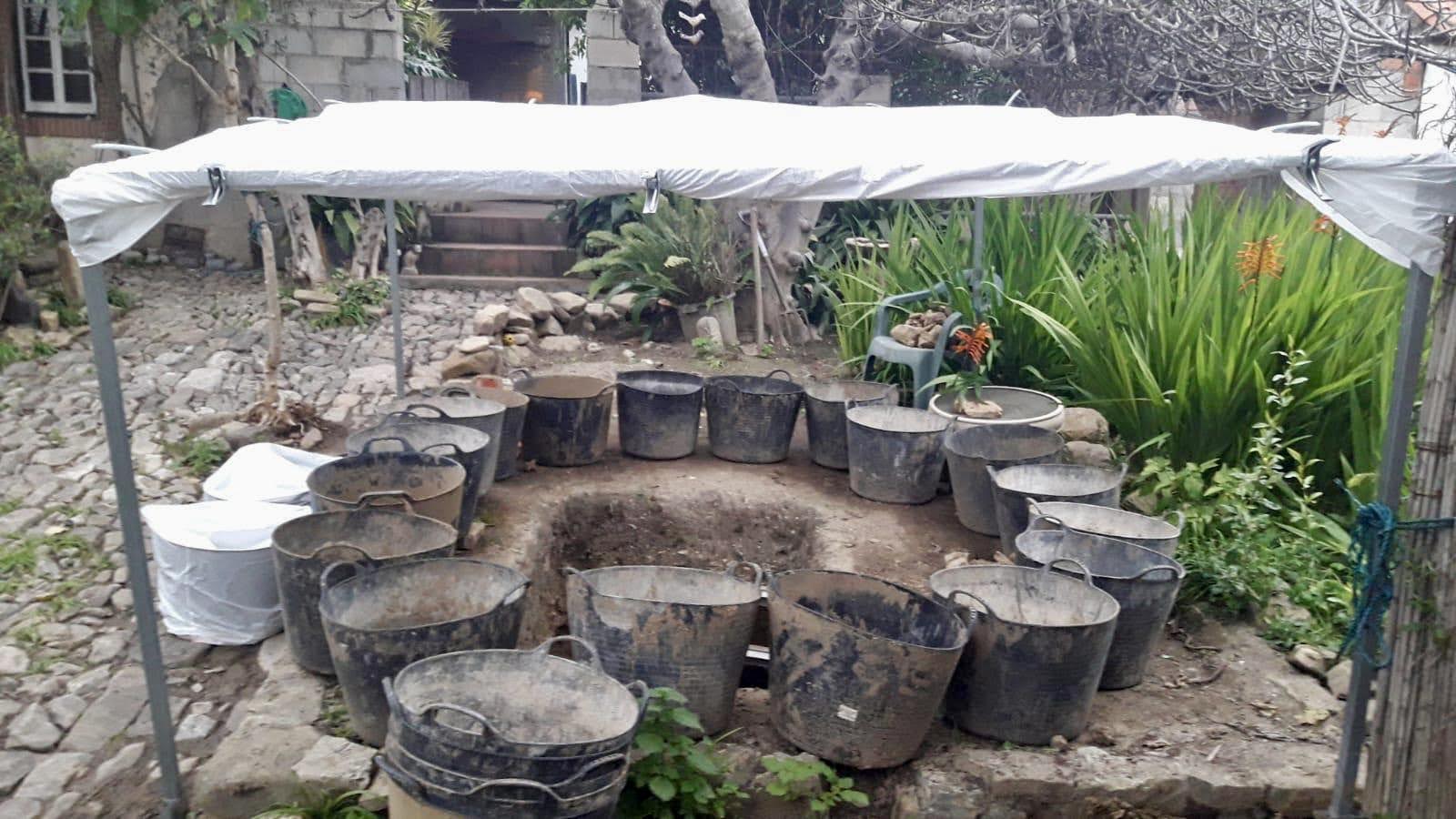
There is nothing less interesting than rubble when demolishing a wall. Our only desire is to get rid of it to finish our work as quickly as possible.
However, when my friend Lise, accustomed to exploring the Andalusian countryside in search of hidden Roman sites, found a red and flat triangular fragment in the debris of an old wall in her kitchen, it was enough to pique her curiosity.
In less time than it takes to say it, she sent a photo of the object to a ninety-five-year-old archaeologist friend who confirmed to her that she had just found a piece of tegula, the tile used by the Romans to cover their roofs.
What was this piece of Roman tile doing in her wall? Lise knew that the ancients didn’t go far to find their materials when they built or repaired their homes. Driven by a keen curiosity and encouraged by her archaeologist friend, Lise wanted to check what lay beneath her feet. Armed with a simple trowel, she started to dig.
As the person you have spent and will continue to spend the most time with, you deserve to be known.
You don’t wait for extreme circumstances to get to know people. You don’t wait for your family members, colleagues, or friends to be in distress, or to participate with them in survival workshops to develop and maintain a relationship. Unless you are in a conflict environment, in risky areas, or are adrenaline junkies, it’s even more likely that you’ll almost never be faced with such situations.
Our relationships with others develop organically by spending time with them, taking an interest in them (whatever our motivations may be), and sharing experiences or activities together (including, why not, survival workshops).
To get to know yourself, it’s the same thing but with you. You just need to get past this idea that it’s sometimes more acceptable to be interested in others than in oneself.
If for them you only have access to the surface, to that visible part of the iceberg, and asking questions will be one of the only tools at your disposal, in your case, you have a valuable advantage. You have direct access to your experiences 24/7. Your emotions, actions, thoughts, and your model of the world are your research ground. You can leisurely explore these inner landscapes or let them unfold on the world around you to uncover the still unexplored corners that are just waiting to be discovered.
Getting to know yourself better will allow you to better understand what drives you and how to engage in enriching discussions with others, much like Lise who was able to arouse the interest of people in her village with her discoveries by letting them glimpse what could also be found beneath their feet.
When she began to dig, Lise had no expectations or pressure regarding what she might or should find. She allowed herself to welcome every pottery fragment, every piece of bone, every empty shell she delicately unearthed with her hands from the earth that enveloped them. Her gaze was filled with the wonder associated with a child discovering the world. For her, everything she found was a piece of history, carrying connections and interactions, laden with a value beyond appearances. This routine where she sat in her hole had become a cherished moment. She thought of nothing else, engulfed in peaceful tranquility.
You too, give yourself enough importance. Move beyond ignorance and indifference. Tell yourself that you still have many things to discover. Things invisible today because you haven’t learned to recognize them and perceive their value. But they are there, buried under layers of judgments, anecdotes, and explanations that you and your surroundings have accumulated over time to make sense of your emotions or behaviors, through the ideas and knowledge of that time.
Dig. Visualize yourself as witnesses of another time, other circumstances, other necessities. Ask yourself sincerely how this relates to you today. What relevance do these fragments of history have as you examine them? Are they relics of a past that belongs in a museum? Or do they still form part of the foundations on which you want to build your future?